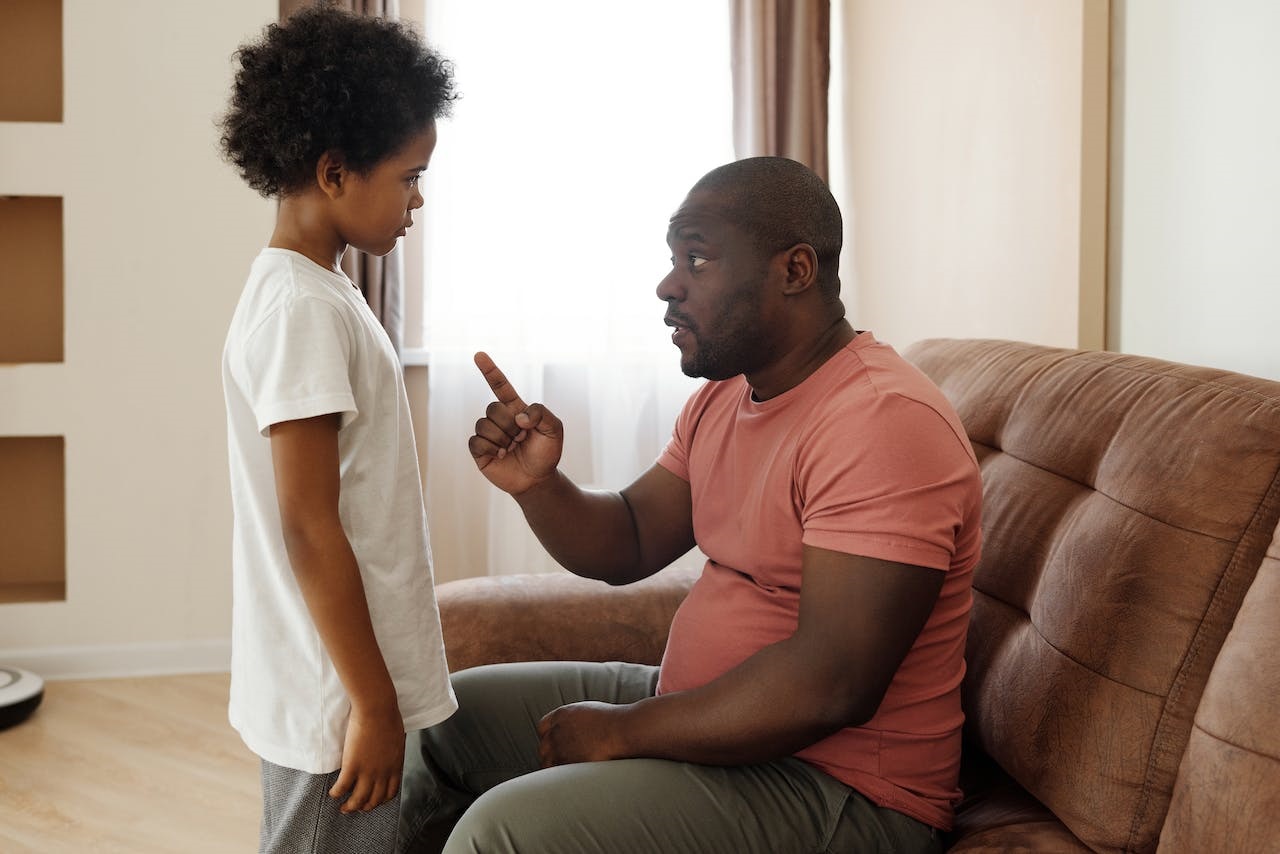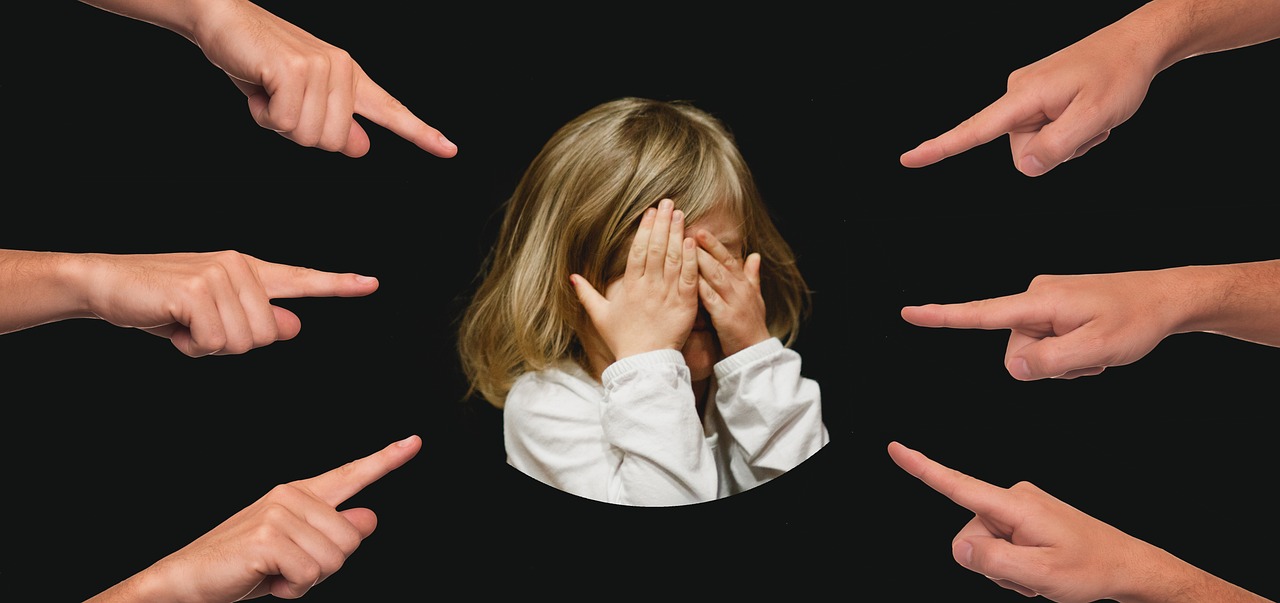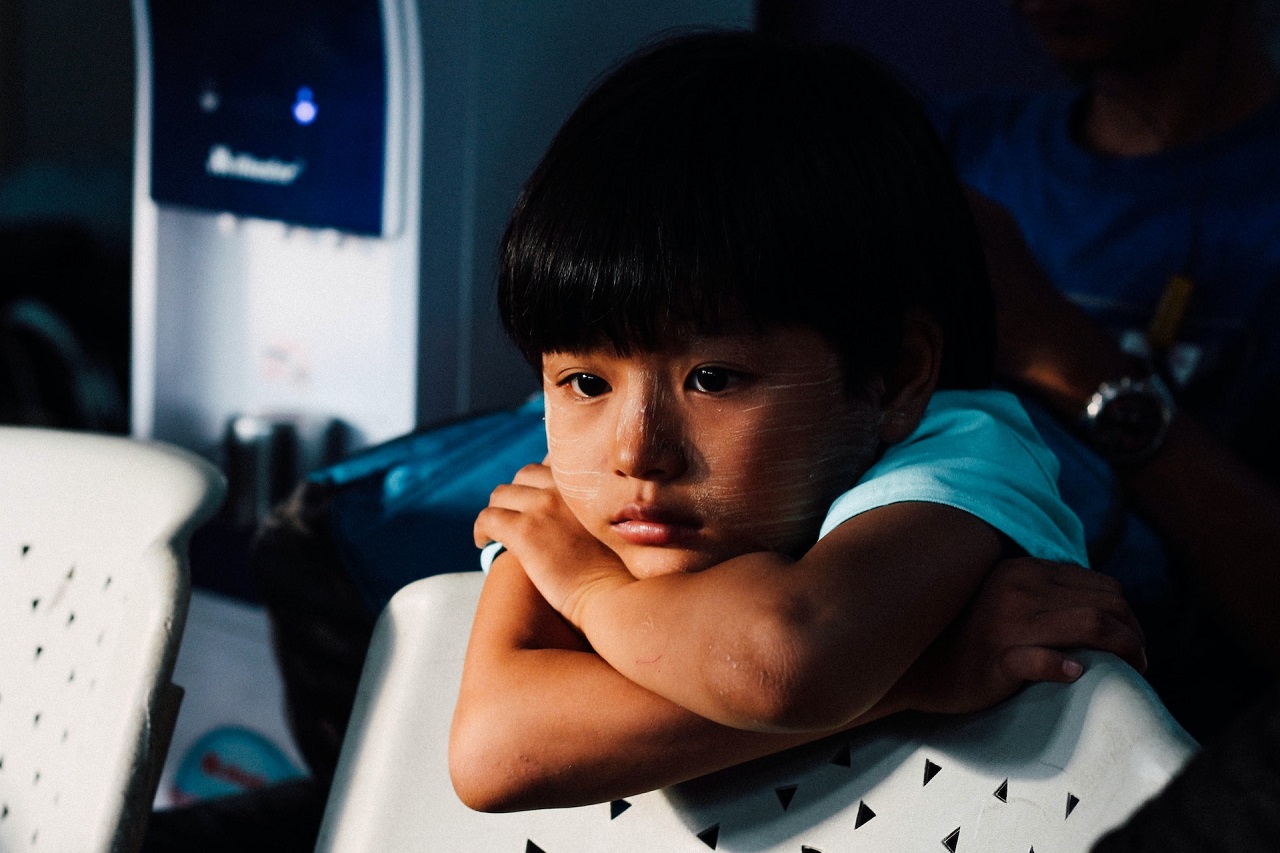Beware Of The Contested Theory On Parental Alienation
Separating fact from fiction can be a troublesome undertaking. One example: parental alienation. Be careful as you try to make sense of this complex issue.
Author:Iram MartinsReviewer:Elisa MuellerNov 13, 202316.5K Shares223.7K Views

Parental alienationis a complex and contentious topic that digs into the intricate dynamics of family relationships.
This concept is often considered a theoretical framework, surrounded by debate and controversy within the fields of psychology and family law.
While some experts argue it’s a valid and recognizable psychological theory with significant consequences, others dispute it.
This article explores parental alienation, presenting the divergence of opinions surrounding its definition, recognition, and implications.
What Is Parental Alienation?
At its core, parental alienation refers to a situation in which one parent deliberately attempts to distance or estrange a child from the other parent.
Intentional or not, one thing’s for certain: it can lead to a child’s strained or severed bond with the other parent.
This often occurs during a custody battle, which stems from divorce or separation, where one parent may use various strategies to undermine the child’s relationship with the other parent.
In an article published by his law firm Farzad & Ochoa, Babak Robert Farzad, a California-based family law attorney, describes such strategies as “often planned and malicious.”
That’s why he admitted that he and his fellow lawyers “enjoy defeating them [alienating parents] in court.”
Note:Both mothers and fathers can become alienating parents.
Clinical psychologist Susan Heitler, who has been in practice since 1975, disclosed in her 2018 article for Psychology Today that based on her professional experience, mothers are usually the ones guilty of parental alienation.
Heitler added:
“„In general, the alienating parent is the least emotionally healthy of the two; they’re often more wealthy, as well, and are better able to afford legal challenges.- Susan Heitler, Ph.D.
Based on research, per Psychiatric Times, in divorce cases, 11 percent to 15 percent of them involve parental alienation.
In fact, research also reveals that from the day the divorce and child custody are finalized, 20 percent to 25 percent of alienating parents continue being such for the next six years.
See? When nurtured, hatred can last for years.
Let’s further discuss what parental alienation is, according to some academics, professionals, lawyers, psychiatrists, and psychologists.
a. As an idea
For Lisa Wagner, a certified family specialist and a registered family dispute resolution (FDR) practitioner, and Emilia Turnbull, a family lawyer, they introduce parental alienation “as a concept.”
In a March 2023 article published by Doolan Wagner Lawyers, an Australian law firm, Wagner and Turnbull explain that while academicians acknowledge the idea of parental alienation, the law - at least, in Australia - doesn’t “explicitly” recognize it.
They describe parental alienation as the circumstance when one parent speaks ill of the other parent, which, then, affects the child’s perception of the parents.
In parental alienation, there’s the:
- Alienating parent- the parent who says bad stuff about the other parent
- Targeted parent- the parent being maligned by the alienating parent
They further explain:
“„Parental alienation is where one parent uses manipulation, criticism, or other negative behaviors to influence the perceptions of the child to turn them against the targeted parent.- Emilia Turnbull and Lisa Wagner
In her Psychology Today article, Susan Heitler describes alienating parents as “narcissistic” or emotionally unstable.
b. As a person’s state of mind
A December 2021 Psychiatric Times article regards parental alienation as a “mental state.”
It derives its definition from Parental Alienation - Science and Law (2020), a book by Demosthenes Lorandos, a forensic psychologist and attorney, and William Bernet, a child psychiatrist and forensic psychiatrist.
Bernet, by the way, is one of the authors of the said article; the other one, Alan D. Blotcky, a clinical and forensic psychologist.
Based on the definition in the book, as interpreted in the said Psychiatric Times article, it’s the child’s state of mind being referred to.
Parental alienation is when a child thinks one parent is good and the other is bad, and based on that thinking will pick one of them.
The child decides which one of the parents will be chosen and which one will be rejected. However, the child’s decision, as noted by the authors, can be “without legitimate reason.”
An article published by Psychology Today in August 2022 can attest to this.
According to it, in 2019, an estimated 22 million American parents have an estranged relationship with their child/children attributed to parental alienation.
What’s shocking is that these parents got alienated without behaving in any way that would warrant it.
It could be “unjustified negativity”initiated by the alienating parent, according to Ken Lewis, director of Child Custody Evaluation Services of Philadelphia, Inc.
In a document he wrote for Trends in State Courts, a yearly publication by the U.S. National Center for State Courts (NCSC), Lewis said that an alienating parent aims to ruin the image of the targeted parent on their child.
That way, the child will think that the alienating parent is a good parent and the targeted parent is a bad one, making the child choose to stay with the former.
c. As a public affair or societal dilemma
Social psychologist Craig Harper considers parental alienation “as an important social issue.”
Harper, who’s also an associate professor in Psychology at Nottingham Trent University in England, wrote the Psychology Today article cited earlier.
There he shares that approximately four million American children are estranged from either their mother or father.
d. As a form of abuse
Craig Harper also mentioned parental alienation being “a form of domestic abuse.”
That’s what another Psychology Today article, the one by psychotherapist Michael J. Formica, talks about.
He also uses the term “domestic abuse” to describe parental alienation.
For Formica, it’s when an alienating parent manipulates - a “manufactured manipulation,” as he specifically puts it - his/her own child to:
- advance his/her agenda
- provoke emotional responses
- garner sympathy
In short, a child gets “weaponized,” according to him, which can be treated as a form of domestic abuse.
Formica also informs us - in case it gets unnoticed or unclarified - that parental alienation can happen not only after a divorce/separation but also while the marriage/relationship is still ongoing.
And, unfortunately, regardless of whether it happens within the marriage or after the divorce, he pointed out:
“„The collateral damage here is the kids.- Michael J. Formica, EdM, NCC, LPC
Attorney B. Robert Farzad, the one we mentioned earlier, calls it a form of “child abuse” as it can inflict to children “psychological harm” that can last a “lifetime.”
Parental alienation, added Atty. Farzad, can negatively impact the way a child interactswith other people and establish relationships with them as he/she grows up.
Ken Lewis said in his paper published by Trends in State Courts that a child can lose his/her affection towards a parent because of various reasons.
For example, the parent is an alcoholic, or the parent physically or sexually abuses the child.
A child can also get mad with a parent who initiated a divorce thinking that this parent is the one responsible for their broken family.
That said, Lewis clarified that when a child dislikes a parent because of the parent’s bad attitude towards or treatment of him/her, this doesn’t count as parental alienation.
When a parent plots to make a child hate the other parent and become physically and emotionally withdrawn from the other parent, then that’s parental alienation.
That’s why Lewis calls it a form of “emotional child abuse” because the alienating parent plays with the fragile emotions of the childand twists the child’s mind to make the targeted parent dislikeable.
e. As a “syndrome”
In 1985, controversial psychiatrist and psychoanalyst Dr. Richard A. Gardner (1931-2003) coined the term “parental alienation syndrome (PAS).”
Dr. Gardner also categorizes it as a kind of childhood disorder because the spotlight here is on the child, not on the parents, according to Lewis’s paper.
In PAS, it’s the child that’s at fault. Why is that so?
It’s because it’s the child that instigates hatred towards a parent, but such hatred is unfounded.
Still, the parent that’s not hated by the child encourages the child to develop that hatred, making that parent the alienating parent.
That’s PAS for Dr. Gardner.
What makes him controversial, according to a June 2003 New York Times article, was that if a child is suffering from PAS, he recommends that child to be taken into custody by the parent the child hates.
It’s like this:
A couple files for divorce. The child hates the father because she accuses him of molesting her. For Dr. Gardner, this child could have PAS, with the mother probably feeding her with concocted lies against her father.
Therefore, Dr. Gardner wants the child to stay with the father and not with the mother.
Why?
It’s because the accusation against the father may just be fabricated by a wife who may simply want to take revenge on her husband.
But what if the allegation is true? That’s what makes Dr. Gardner’s PAS controversial and unreliable, too.
In the end, considering the explanations and notions - with some even conflicting - regarding parental alienation, they all boil down to this description by Formica: “a post-relationship phenomenon.”
Signs Of Parental Alienation
The following are some of the signs of parental alienation by the alienating parent, as identified by Emilia Turnbull and Lisa Wagner:
1. Telling the child that the targeted parent:
- is a dangerous person
- doesn’t anymore love him/her
2. Forcing the child to stop loving or caring for the targeted parent
3. Saying bad things about the targeted parent regardless if they’re factual or not
4. Telling the child sensitive secrets/confidential stories involving the alienating parent and the targeted parent
5. Permitting the child to meet the targeted parent but irregularly
6. Allowing the child to communicate with the targeted parent but always interferes
7. When talking to the child about the targeted parent, the alienating parent refers to him/her by first name, not as “father/mother” or “Daddy/Dad/Mommy/Mom.”
8. Being reluctant or plainly uncooperative when asked for the child’s essential records or documents (e.g., school records, medical history, etc.)
Below are some signs of parental alienation by the child, according to Ken Lewis:
1. The child constantly hates the targeted parent.
2. The child only feels hatred towards the targeted parent.
3. The child says things that the alienating parent typically says.
4. The child can’t be convinced to visit the targeted parent.
5. The child’s way of thinking compliments or reflects that of the alienating parent.
6. The child’s thoughts or reasoning are either unreasonable or downright ridiculous.
7. When reasoning out, the child bases it on what he/she hears or learns from the alienating parent, not from his/her experience.
8. From the outside, the child looks like he/she is living a normal life, but once asked about the targeted parent, he/she can’t conceal/control the hatred.
Impact Of Parental Alienation On Child
Parental alienation can have long-lasting and damaging effects on the child’s relationship with both parents and on his/her overall emotional and mental well-being.
In addition, according to a study published by the journal Children-Basel in 2022, it’ll be tough for the child to perceive him/herself and to trust their feelings and views easily.
Here are some of the other effects of parental alienation on children as discussed by clinical psychologist Vinita Mehta in her December 2021 Psychology Today article:
- low self-esteem
- may have suicidal thoughts
- may develop anxiety or post-traumatic stress disorder (PTSD)
- become prone to alcohol and/or substance abuse
- may find it challenging to develop and maintain healthy relationships
The Truth About Parental Alienation
For its potential impact on children’s well-being and the broader implications for family dynamics, parental alienation has garnered attention through the years.
The overwhelming attention it has received has even made it a controversial and debated topic, particularly in some psychological circles.
The long and short of it is that while experts - academics, attorneys, psychologists, psychiatrists, etc. - acknowledge the phenomenon called parental alienation, they don’t all agree that it should be involved in decisions pertaining to child custody, according to Psychiatric Times.
It’s hard to verify assumptions and assumptions can be wrong.
Based on a 2016 paper published by the University of Malaya Law Review (UMLR), the medical field doesn’t broadly or fully recognize Dr. Gardner’s PAS.
As its author, Holly Smith, concluded:
“„Parental alienation syndrome is not a validated mental health disorder.- Holly Smith
In courts, according to the paper, custody battles don’t dwell much on parental alienation.
Judges View On Parental Alienation
Some argue that parental alienation is misused in legal proceedings and may not always be based on valid evidence, leading to concerns about its potential misuse in custody battles.
Australia’s own Family Law Act 1975, according to Turnbull and Wagner, doesn’t “explicitly” mention parental alienation.
In the U.S., two bills were signed to guide the justice system in dealing with custody cases so that court decisions will uphold and safeguard the welfare of the child.
Kayden’s Law
President Joe Biden signed Violence Against Women’s Act Reauthorization Act of 2022.
VAWA 2022 includes the Keeping Children Safe from Family Violence Act or “Kayden’s Law,” named after Kayden Mancuso (2010-2018).
Kayden, 7, was killed by her father.
Kathryn Sherlock, her mother, wanted full custody of the childafter separating with Jeffrey Mancuso (died 2018; likely committed suicide).
According to the National Safe Parents Organization (NSPO), she gave criminal records and other pertinent evidence to the court to prove his violent nature.
Still, the court granted Jeffrey Mancuso visiting rights.
Kayden’s Law ensures that when it comes to granting custody and visitation rights, the court will first prioritize the child’s safetyand check for instances or history of family violence.
Piqui’s Law
In October 2023, California Governor Gavin Newsom signed Piqui’s Law, named after 5-year-old Aramazd “Piqui” Andressian, Jr. (2012-2017).
As his parents faced a custody battle, his father killed him in 2017.
Piqui’s Law requires family court judges to undergo training to help them deal better with custody cases, reported ABC7.
Parental Alienation - People Also Ask
Do Alienated Children Ever Come Back?
In her eponymous blog, psychotherapist Karen Woodall said that an alienated child and the targeted parent can rekindle their relationship.
She claimed in an April 2019 post that she witnessed “45 severely alienated children” in the U.K. reconciling with targeted parents.
According to ParentalAlienationAwareness.com, 95 percent of alienated children reunite with targeted parents and renew their relationship with them.
How Do You Rebuild A Relationship With An Alienated Child?
Here are some of the things that can be done, according to the non-profit organization Child Rights Foundation:
a. As you settle your problems with your ex-husband/wife, never involve your child and make him/her part of the problem.
b. Constantly fight off the temptation to engage in parental alienation.
c. Help the child develop critical thinking.
What To Do If You Are A Victim Of Parental Alienation?
Cordell & Cordell, a Missouri-based domestic litigation firm, offers these four tips:
1. Record in a journal everything that happens related to custody. Write down complete dates and important details.
2. When you’re the targeted parent and you want to ask the alienating parent to see your child, do so via email or social messaging apps. That way, you can have an online proof to show your eagerness to see your child.
3. See a therapist for some counseling. In court, you can tell how serious you are to change for the better just to see your child again.
4. Never give up on seeing your child.

Final Thoughts
Legal professionals, mental health experts, and family courts must handle cases involving parental alienation with sensitivity.
They must carefully assess the circumstances and consider the best interests of the child.
Understanding the contested nature of this theory is essential for a comprehensive examination of the complexities involved in family relationships and the potential consequences of parental alienation.

Iram Martins
Author
Iram Martins is a seasoned travel writer and explorer with over a decade of experience in uncovering the world's hidden gems. Holding a Bachelor's degree in Tourism Management from the University of Lisbon, Iram's credentials highlight his authority in the realm of travel.
As an author of numerous travel guides and articles for top travel publications, his writing is celebrated for its vivid descriptions and practical insights.
Iram’s passion for cultural immersion and off-the-beaten-path adventures shines through in his work, captivating readers and inspiring wanderlust.
Outside of his writing pursuits, Iram enjoys learning new languages, reviewing films and TV shows, writing about celebrity lifestyles, and attending cultural festivals.

Elisa Mueller
Reviewer
Elisa Mueller, a Kansas City native, grew up surrounded by the wonders of books and movies, inspired by her parents' passion for education and film.
She earned bachelor's degrees in English and Journalism from the University of Kansas before moving to New York City, where she spent a decade at Entertainment Weekly, visiting film sets worldwide.
With over 8 years in the entertainment industry, Elisa is a seasoned journalist and media analyst, holding a degree in Journalism from NYU. Her insightful critiques have been featured in prestigious publications, cementing her reputation for accuracy and depth.
Outside of work, she enjoys attending film festivals, painting, writing fiction, and studying numerology.
Latest Articles
Popular Articles



